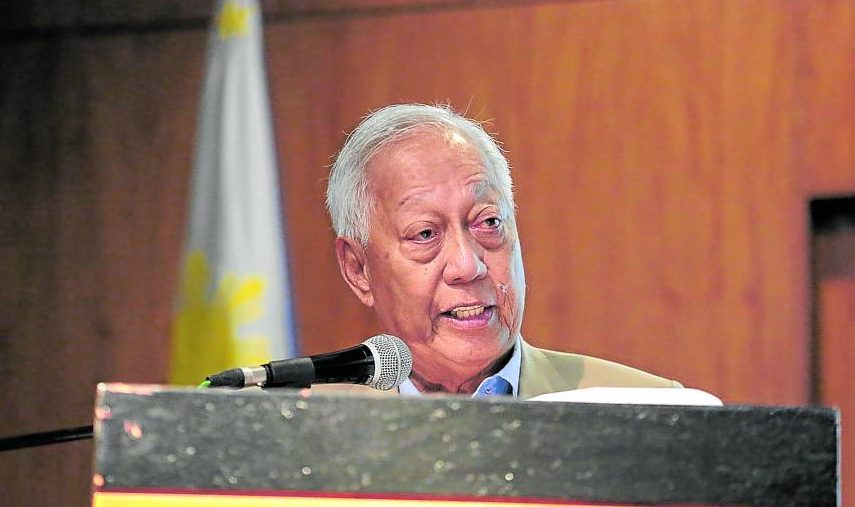
Christian Monsod —INQUIRER PHOTO
One of the framers of the 1987 Constitution on Thursday advised lawmakers who sought his views on Charter change (Cha-cha) to defer making amendments and instead pass an enabling law banning political dynasties—if the goal is to reduce mass poverty and social inequalities.
“Real change cannot happen until we strike at the roots and not at the branches of the problems. Congress has not passed an antidynasty law for 35 years and blames the Constitution for the lapse. That is a lame excuse. The real reason is self-interest,” said lawyer Christian Monsod, a former chair of the Commission on Elections.
“We are still the laggards in our part of the world in addressing the problems of mass poverty and gross inequalities, social, economic, political that [are] rooted in a feudalistic system of dynastic families that has been impervious to change for generations and its companion evil, corruption,” he said.
Consultation
Monsod was one of the legal experts invited by the House committee on constitutional amendments for a public consultation regarding four pending bills and resolutions, as well as a petition, calling for a constitutional convention to amend the charter.
“So instead of rushing to amend the Constitution, why don’t our legislators pass an antidynasty law, of say, four degrees [of separation] for the barangay elections this year? And how about the abuse by political dynasties of the party list system?” he said.
To protect it from abuse, he said, the party list system should have an antidynasty safeguard and the limit on the number of representatives (three per group) should be removed. The provision allowing any politician who claim having a “track record of advocacy” to represent a marginalized sector is a “loophole” that should also be plugged.
The enactment of the present Constitution following the 1986 Edsa People Power Revolution that toppled the Marcos dictatorship marked the “first time that we spoke to the world as a truly independent and democratic nation,” he added. “[It] wasn’t only about the restoration of democracy through peaceful means. To the poor, it was also a promise of a new social order that remains unfulfilled to this day.”
‘Vengeful’
But for Manila Rep. Bienvenido Abante, one of the current proponents of Cha-cha in the House, “our 1987 Constitution is more of a vengeful Constitution than a Constitution that actually would be more for the Filipino people.”
“It’s a Constitution that was designed against a former President rather than designed to help the Filipino people,” said Abante in a speech delivered during Thursday’s consultation. He was referring to the late ousted dictator Ferdinand Marcos Sr., father of the President.
Abante, who was sponsoring a bill calling for the election of delegates to a constitutional convention, noted that the current charter was crafted by a constitutional commission where the delegates were “handpicked” by then President Cory Aquino.
Just a mirror image
“I think it should be the people that ought to elect the delegates of the constitutional convention; not handpicked by a President,” the lawmaker stressed.
For Monsod, however, having “independent” delegates in such a body cannot be guaranteed even through an election.
“With all due respect, your honors, the fact is that political dynasties now control Congress and electing the delegates by district will only result in a mirror image of the composition of the Congress, with the same controlled outcomes by the dynasties. It is a reality we can’t deny,” he said.